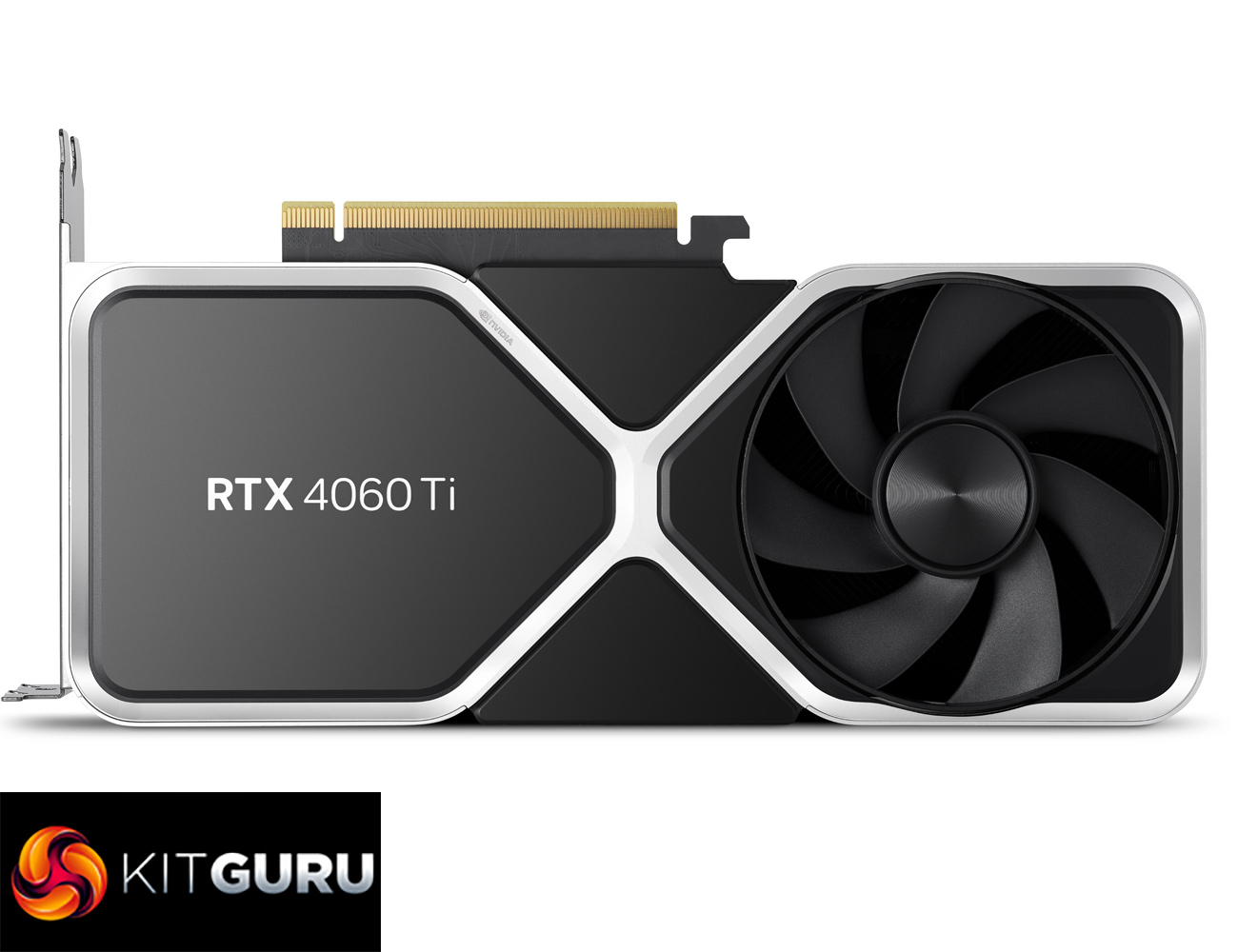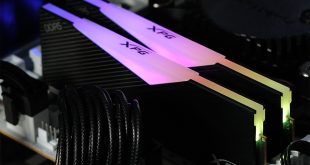Announced just last week, it has been a busy few days putting Nvidia's new RTX 4060 Ti 8GB through its paces. As a reminder, availability of the 8GB model reviewed here is set for May 24th at 2pm BST, with a retail price of £389. A 16GB version is slated for release in July, with prices starting at £479.
To cut right to the chase, I firmly believe this is the weakest RTX 40-series GPU so far, and that all starts with the raw performance. On average, the RTX 4060 Ti delivers just an 11% performance uplift versus the RTX 3060 Ti at 1080p resolution. At 1440p, the margin is even smaller, with the new Ada GPU just 8% faster than its Ampere predecessor. It really is an incredibly weak gen-on-gen uplift, and there were even a few examples today where the RTX 4060 Ti was actually slower than the RTX 3060 Ti, likely due to its limited memory bandwidth.
Of course, the RTX 3060 Ti is still a capable graphics card to this day, and an extra 10% performance means you get high frame rates at 1080p and solid results at 1440p from the 4060 Ti. There's a clear drop off as the resolution increases however, with the narrow 128-bit memory interface causing a slow down that even 32MB of L2 cache can't alleviate. This is surely the reason Nvidia has focused all of its marketing efforts on positioning the 4060 Ti as a ‘1080p card' – despite heralding the RTX 3060 Ti as ‘a tremendous purchase for gamers seeking blistering 1080p and 1440p max setting performance.‘ (Emphasis my own).
Considering the meagre performance uplift, Nvidia is clearly banking on DLSS 3 to try and sell the RTX 4060 Ti to prospective buyers. I'll freely admit DLSS 3 is a feature I like and often use during my own personal gaming sessions. It cannot be the main, dare I say sole, reason to upgrade to a 4060 Ti. This is partly due to the fact that, as of May 18th, DLSS 3 is supported in just 34 games. PCGamesN reported in December 2022 that Steam is now home to over 50,000 titles – so if you're playing one of the 99.97% of games that don't support the technology, you're stuck with just ~10% gains over the RTX 3060 Ti.
Arguably more importantly, unlike DLSS 2 which is almost universally beneficial, there will always be some gamers who would never enable DLSS 3 due to its latency implications. That's another big problem when you consider the majority of Steam's most played games are competitive multiplayer titles, severely diminishing the allure of DLSS 3 if you primarily play that sort of game.
Just stopping to think on what this GPU is capable of gives me a tinge of regret. It's genuinely a technical marvel that Nvidia has been able to take the AD106 GPU, a die that's less than half the size of GA104, and yet it outperforms it while offering vastly improved efficiency. This could have been a fantastic entry-level GPU, as befitting its die size, but at £389, AD106 is in a different class entirely.
At that price point, we may as well come out and say it – 8GB VRAM simply does not cut it anymore. We covered this topic extensively in our video review, but for this class of product, such a meagre frame buffer is an absolute dealbreaker in 2023. That's not to say 8GB VRAM is useless or won't run new titles, but the way the industry is going, 8GB GPUs really need to be considered entry-level in my opinion, RTX 3050-type products which target 1080p gaming at Medium or High settings. Not something that's almost £400 and in this performance tier.
I also think it's important to distinguish between game benchmarks and the actual experience of playing a brand new title on day 1. Many reviewers, myself included, test more mature games that have finished their update cycle – this provides us with the stability we need when trying to benchmark dozens of GPUs, while also mitigating the potential of having to restart our testing due to a new patch that significantly changes our results. From that perspective, plenty of 8GB cards could still be considered viable, at least for 1080p max settings, as indicated by the bulk of our benchmarks today.
The real problem for 8GB cards has been well and truly exposed this year when trying to play a number of new titles on launch day. The Last of Us Part 1, Forspoken, Callisto Protocol, Hogwarts Legacy, Resident Evil 4 Remake… the list goes on. Poorly optimised ports or not, the fact remains there is a growing number of games where 8GB GPUs simply had a very rough time of things when trying to play at launch, and if this is happening now – what will things be like one, two, three years down the line?
Unfortunately, I think this is a very straightforward review to conclude – I can't in good faith recommend the Nvidia RTX 4060 Ti 8GB at its current asking price of £389. It's barely an improvement over its predecessor in terms of raw performance, its narrower memory interface reduces performance at higher resolutions, and 8GB of VRAM is simply not enough. The RTX 4060 Ti needs a hefty price cut to have any chance of viability considering its limitations.
The RTX 4060 Ti has an MSRP of £389 and will be available from tomorrow, May 24th.
Discuss on our Facebook page HERE.
Pros
- While a very weak upgrade versus the RTX 3060 Ti, shader performance is still decent.
- Very efficient.
- Founders Edition cooler is as good as ever.
- DLSS 3 is a useful feature in the games that support it.
Cons
- 8GB VRAM is a dealbreaker for this class of GPU.
- Incredibly disappointing performance improvement versus the previous generation.
- No real improvement in cost per frame versus 30-series.
- 128-bit memory interface limits performance above 1080p.
- PCIe Gen4 x8, not x16 interface.
KitGuru says: Many will – rightly – focus on the insufficient frame buffer, but the RTX 4060 Ti is disappointing across the board.
 KitGuru KitGuru.net – Tech News | Hardware News | Hardware Reviews | IOS | Mobile | Gaming | Graphics Cards
KitGuru KitGuru.net – Tech News | Hardware News | Hardware Reviews | IOS | Mobile | Gaming | Graphics Cards



